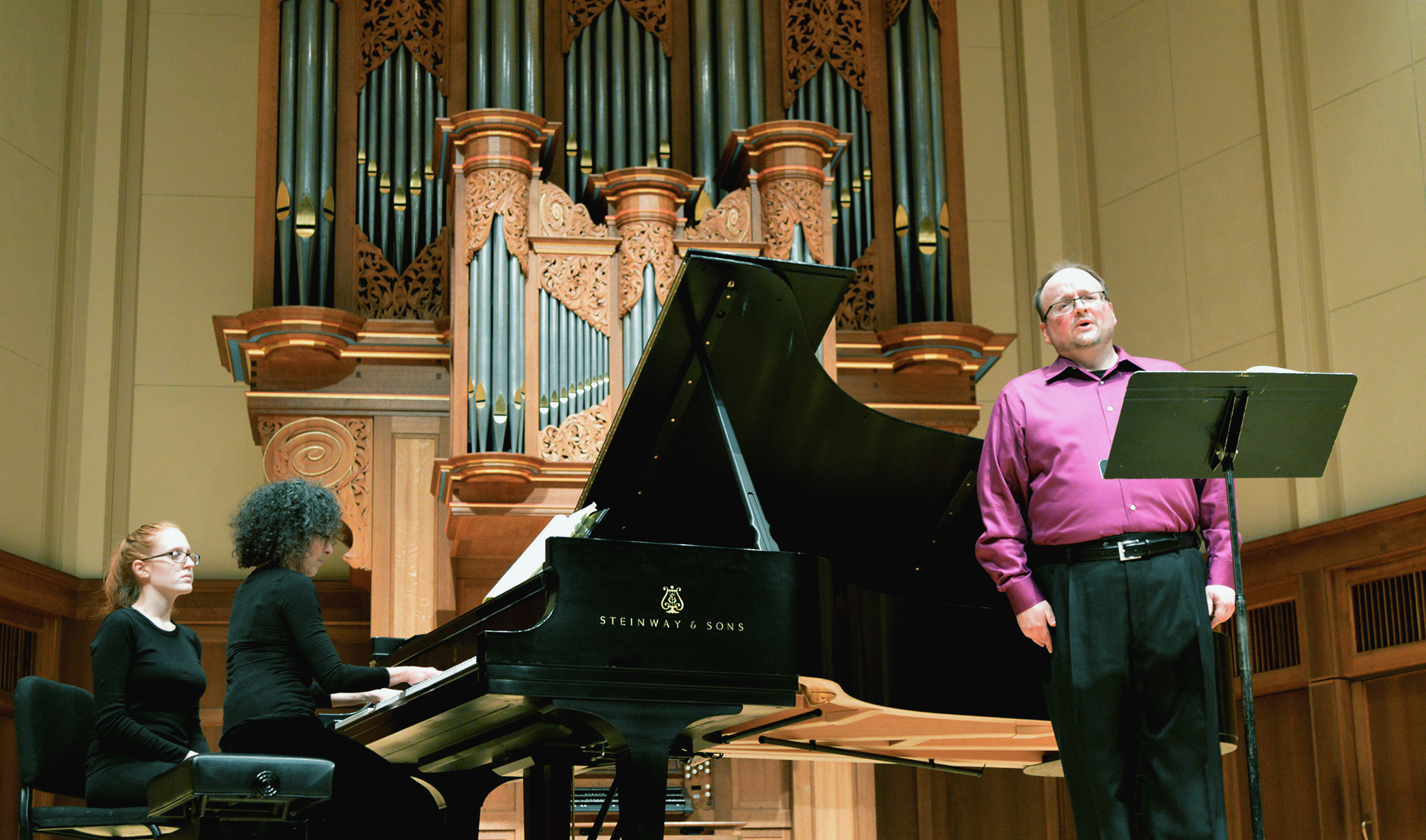The Friday night performance on January 23 of Franz Schubert’s “Winterreise” can be defined with one word, and that is immersive. Despite being sung in German—though translations were provided to help you follow along—and with only piano to accompany, as well as being a song cycle, it was not something you would or could be bored by.
This is partially due to the sheer quality of the work, Schubert being Schubert, but also because the two Lawrence professors who performed the work, Steven Paul Spears, voice, and Catherine Kautsky, piano accompaniment. They performed at a such an exceptional level, with their concentration, dedication, and interpretation of this hauntingly beautiful work.
Indeed, it is thanks to their skill that a performance and production that seems on the surface to be perplexing is as riveting as the latest Hollywood spectacle.
It’s all the more impressive considering that, when translated to English, Schubert’s “Winterreise” is not exactly a leaves-you-on-the-edge thrill ride. Indeed, its simple story—though not simplistic—the poems are written by Wilhelm Muller, and it would not be wrong to call them “autobiographical.” Having recently been rejected by his true love in favor of a much wealthier suitor, he goes wandering off into the snow, where he gets lost, runs into a variety of phenomena that evoke his past, present, and future, and falls asleep from exhaustion.
Somehow not dying of hypothermia, he goes into town, gets everyone depressed from his desire to die, and ends up sharing a connection with a hurdy-gurdy player. The end. Not the most thrilling material, but Spears and Kautsky have more than enough to work with. Spears’ tenor is soft, but not weak, and he cut through the thicket of Muller’s dense German like a laser beam, taking a language that most people reduce to caricature and making it sound almost like bird song in its beauty. He stood like a sentinel on the stage, rarely moving, never shifting his feet and only occasionally gesturing, but it was as if we were being hypnotized, watching him call out words of such pure despair.
The work’s high level would not have been possible without Kautsky’s piano playing. Though her piano part is literally accompaniment, the word is unfair to how essential she is to making it such an immersive experience. The best word would be “partner,” as she, with a feather like touch, took Schubert’s notes and played them like a video game, with perfect control and judgment, never being ignored or overwhelming the voice but rather intertwining with it, creating something greater than the sum of its parts.
The Steinway that stood on the chapel stage seemed to be as cold as the music she played, and I could swear I could see frost forming at the edges during the most intense parts of the performance.
So what was the result, that Friday Jan. 23? Nothing less than an exploration into winter itself, be it the physical or the internal. But it wasn’t as depressing as I made it sound. There was hope inside even the most frigid sections, and the story does end with the hope of a new, although altogether different, human connection. And I found every part of it fantastic.
It was a recital, yes, but it seemed to almost transcend that. It was like theatre, a monologue made of icy words and icier music. I could feel myself shiver as I walked away from the stage after the final applause, confident I had seen something to take my breath away. When I stepped outdoors it was warmer than the place I had left.

